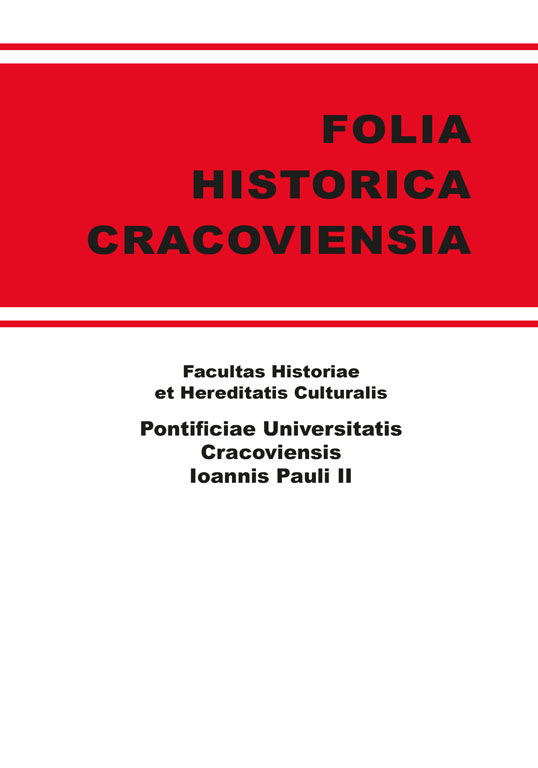Rabacja chłopska 1846 roku w relacji ks. Jana Popławskiego z Niegowici
DOI:
https://doi.org/10.15633/fhc.239Słowa kluczowe:
1846, Galicia, Niegowic, Peasants, RebelionAbstrakt
Ocena wydarzeń z 1846 roku była różna w ocenie urzędowej austriackiej i patriotycznej polskiej. Według tej pierwszej wersji rzeź galicyjska była odruchem wierności włościan wobec monarchii austriackiej, potępiającym próbę powstania przeciw cesarzowi. Z polskiej strony rabację potraktowano jako skutek świadomej prowokacji dokonanej przez biurokrację austriacką, trafiającej na podatny grunt niechęci pańszczyźnianych chłopów wobec szlachty. Rabacja położyła kres przygotowaniom do narodowego powstania. Rozprzestrzeniła się w zachodniej Galicji, głównie w okolicach Tarnowa, Bochni i Jasła. Tzw. „krwawe zapusty” rozpoczęte ok. 19 lutego 1846 roku pochłonęły wiele ofiar. Chłopi napadali na dwory i plebanie w poszukiwaniu powstańców i broni, bili i mordowali dziedziców i ich oficjalistów, demolowali budynki, rabowali wyposażenie dworów i zabudowań gospodarczych.
Z tego okresu zachowały się relacje i wspomnienia, wśród nich relacja ks. Jana Popławskiego (1800–1892), ówczesnego proboszcza w Niegowici. Swoje wspomnienia spisał w 1857 roku, dla rodziny. Ich oryginał znajduje się w Bibliotece Naukowej PAU i PAN w Krakowie, podarowany w 1925 roku przez Seweryna Udzielę. Wspomnienia ks. Popławskiego z 22–24 lutego 1846 roku obejmują tylko 3 dni rabacji, mimo to są cenne jako kronikarski zapis wydarzeń w Niegowici i najbliższej okolicy. Zawierają też osobiste odczucia i komentarze autora wspomnień.
Pobrania
Opublikowane
Numer
Dział
Licencja
Prawa autorskie (c) 2013 Ewa Danowska

Praca jest udostępniana na licencji Creative Commons Attribution-NonCommercial-NoDerivatives 3.0 Unported License.
Autorzy publikujący w czasopiśmie udzielają jego wydawcy zgody o następującej treści:
- Autor zachowuje autorskie prawa majątkowe do utworu, a jednocześnie udziela wydawcy czasopisma zgody na jego pierwszą publikację w wersji drukowanej i wersji online na licencji Creative Commons Uznanie autorstwa 4.0 Międzynarodowe oraz zgody na wykonywanie opracowań, w tym przekładów.
- Autor ma możliwość udzielania zgody niewyłącznej na opublikowanie utworu w wersji, która ukazała się w czasopiśmie (np. zamieszczenia go w repozytorium instytucjonalnym lub opublikowania w książce), wraz z informacją o jego pierwszej publikacji w czasopiśmie.
- Autor może umieścić swój utwór online (np. w repozytorium instytucjonalnym lub na swojej stronie internetowej) jeszcze przed zgłoszeniem utworu do czasopisma.

